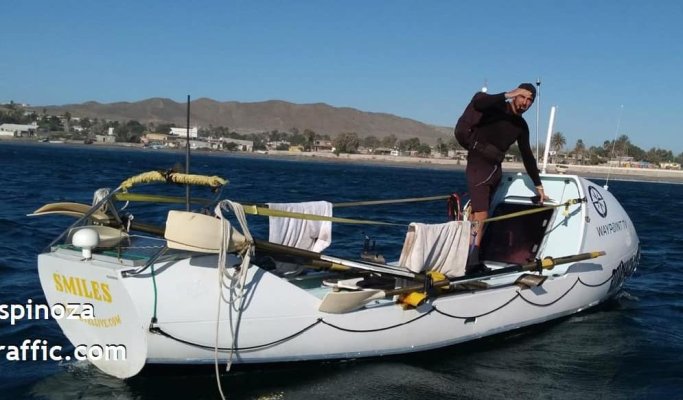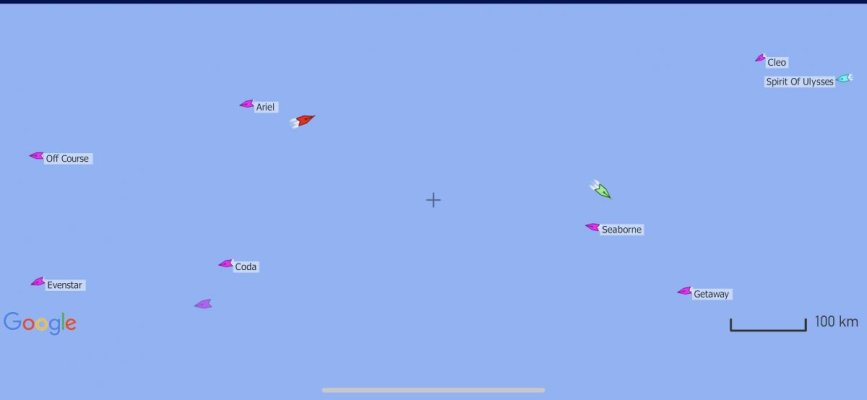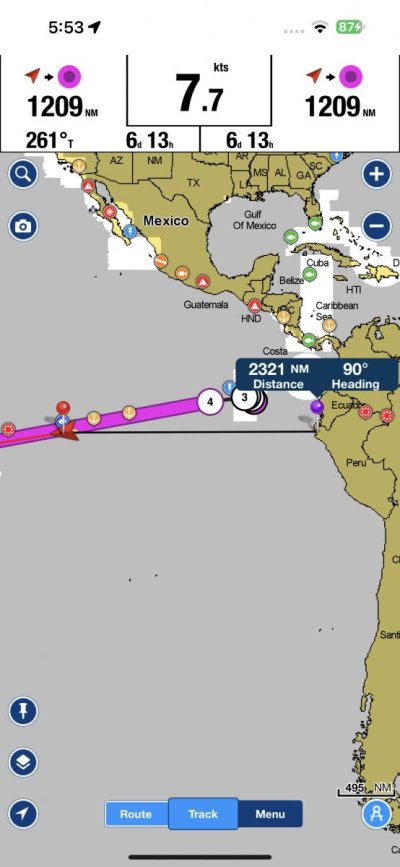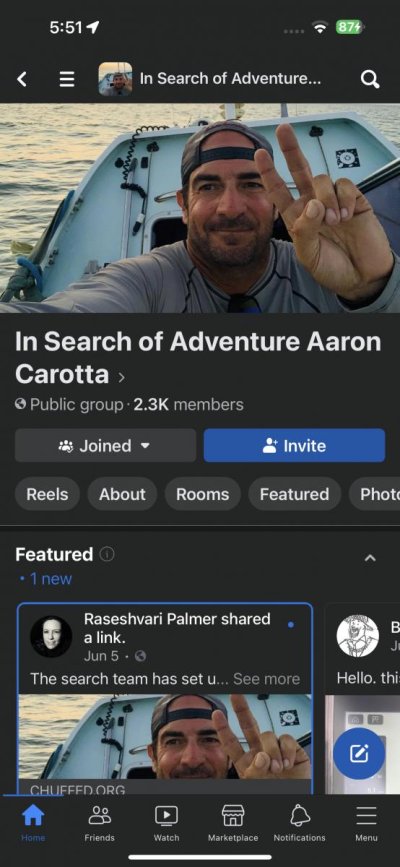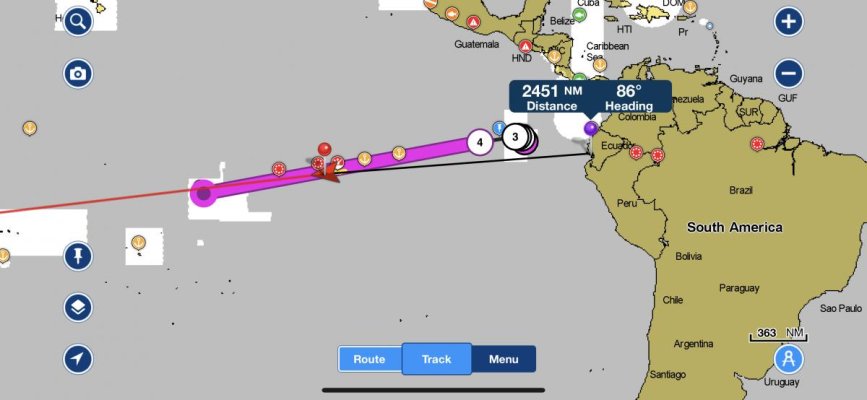CamoPirate
Veteran Member
As some may know I am aboard M/v Spirit of Ulysses, a Nordhavn 76 and we are taking her from Florida to Australia.
There has been a BOLO for a missing Row Boat that about 900 miles east of the Marquesses that departed from Panama. He set of his PLB device several days ago and many members of the Pacific Puddle Jumpers who are making the same run been working together to look for his.
Yesterday despite the fact our KVH satellite phone in the piliot house being turned off it rang ! It was Tahiti SAR or officially known as JRCC, JRCC Tahiti
Centre de coordination de sauvetage aéro-maritime en Polynésie française
Joint Rescue Coordination Center in French Polynesia
Here is the subsequent email exchange.
Subject: MAYDAY RELAY concerning Rowboat "SMILES"
Dear Sir
Radio-beacon PLB REPORTED IN POSITION S05°30.00 - W122°00.00 on the 31 of may from KAYAK "SMILES ROWBOAT" MMSI 338399051 - 1 personne on board
Our scenario (hypothese) is the kayak is on the way is around 1.5kts - proceeding to the west
We request you to join the position 06°20.00S -128°00.00W* and to have a sharp look out between longitude 122°00W and this position. You should pass* longitude 122°00W on the 09 jun 0600UTC and* reach position 06°20.00S -128°00.00W on the 11 jun 0100UTC
We would like to know how long can you be able to do a search after reaching this position ?
You will find a photo of the kayak
Best regards
JRCC Tahiti
M/V Spirit of Ulysses reply:
Hello, understood- will join at 5.30.00 S 122..00.000 W and proceed to position 6.20.000 S 128.00.000 W keeping sharp look out along the way.
We have 1000 gall extra fuel /that doesn’t include the fuel we need to reach Nuku Hiva and the reserve for that/. This 1000 gall extra fuel gives us a week /7 days with 7 to 7.5 kn boat speed. We can remain in the area for 7 days covering 1000 nautical miles.
There has been a BOLO for a missing Row Boat that about 900 miles east of the Marquesses that departed from Panama. He set of his PLB device several days ago and many members of the Pacific Puddle Jumpers who are making the same run been working together to look for his.
Yesterday despite the fact our KVH satellite phone in the piliot house being turned off it rang ! It was Tahiti SAR or officially known as JRCC, JRCC Tahiti
Centre de coordination de sauvetage aéro-maritime en Polynésie française
Joint Rescue Coordination Center in French Polynesia
Here is the subsequent email exchange.
Subject: MAYDAY RELAY concerning Rowboat "SMILES"
Dear Sir
Radio-beacon PLB REPORTED IN POSITION S05°30.00 - W122°00.00 on the 31 of may from KAYAK "SMILES ROWBOAT" MMSI 338399051 - 1 personne on board
Our scenario (hypothese) is the kayak is on the way is around 1.5kts - proceeding to the west
We request you to join the position 06°20.00S -128°00.00W* and to have a sharp look out between longitude 122°00W and this position. You should pass* longitude 122°00W on the 09 jun 0600UTC and* reach position 06°20.00S -128°00.00W on the 11 jun 0100UTC
We would like to know how long can you be able to do a search after reaching this position ?
You will find a photo of the kayak
Best regards
JRCC Tahiti
M/V Spirit of Ulysses reply:
Hello, understood- will join at 5.30.00 S 122..00.000 W and proceed to position 6.20.000 S 128.00.000 W keeping sharp look out along the way.
We have 1000 gall extra fuel /that doesn’t include the fuel we need to reach Nuku Hiva and the reserve for that/. This 1000 gall extra fuel gives us a week /7 days with 7 to 7.5 kn boat speed. We can remain in the area for 7 days covering 1000 nautical miles.

